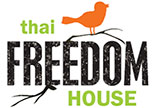Shan Cultural Preservation Project
Coordinator: Seng Lao
Support staff/ volunteer: Lisa Nesser
Mission
To encourage our Shan community members to learn about their own culture, language, customs, dance and clothes. To develop a sense of pride and sense of self in our students so that they pass that on to the next generation and retain it in the case that they return home to Shan State.
Target Group
All community members, especially those of Shan origin.
Objectives
1 Pride in the culture
To create a sense of pride in our members’ Shan origins, and to show off their culture in dance shows and performances. We provide lessons in Shan traditions such as traditional dressmaking, preparation of traditional foods, information about rituals performed at certain times of year and celebration of annual festivals together as a community/family. Through this our members get the benefits of raised self-confidence and self-worth, especially when told repeatedly by the society they live in that their culture is lesser than others.
2 Mother Tongue: Shan language, history and folklore.
The aim of most of our community members is to return home to Shan state in Burma one day. When they do go home they usually feel removed from their cultures, and from their families, if they had lost their language and traditions. The Shan language lessons are provided to ensure that they are able to communicate with their family and community when they return home. There is strong research to show that Mother Tongue based education is essential in literacy acquisition of other languages and learning of basic education.
We teach the history of Shan state in the language club. We read folklore and fables, and explain history around it. The aim is to keep oral traditions alive. This is a usual pastime in villages throughout Shan state, but here Thai Freedom House is the only place our community members can come to learn about their culture on a deeper level.
3 Dance and Music
We operate three Shan dance troupes: one for children, one for teens, and one for adults. These troupes design and wear their traditional clothes and perform at local festivals. They also learn to play traditional music and learn the songs of Shan state, so that when they return they can join in with local ceremonies.
Their parents love seeing them in traditional dress, dancing on stage. It is a huge deal for them all, and helps raise their self-confidence and connect them with their culture.
4 Food
Shan food is cooked in the Free Bird Café, the restaurant that is the face of Thai Freedom House. Our community members are often surprised that foreigners enjoy eating their traditional foods. They sometimes visit the café to see what is being prepared, and this encourages a sense of pride in their culture.
For visitors to the café, this creates an appreciation for Shan food, and therefore Shan culture. It encourages visitors to read up about Shan culture, and learn about the people that Thai Freedom House serves.
5 Fashion and Tailoring
As part of our Sewing and Handicraft Project, the students make traditional Shan clothes. We also provide workshops on Shan fashion, such as how to roll the headdresses that are used in the ceremonies. These thick fabric headdresses must be rolled up and wrapped in just the way people in Shan state would know how to. Here at Thai Freedom House, we aim to keep this tradition alive.
6 Festivals
Participating in Thai festivals, such as the Father’s Day Parade, allows our members to show appreciation for living here in Thailand. Because, as hard as life is for them here, they are still able to live, work and study, which they cannot do in Burma. This also educates Thais and foreigners about Shan culture, encouraging integration as well as keeping their own traditions.
At the end of every term the students have a graduation ceremony in which the dance troupes perform, they dress up, and have a talent show, sometimes with traditional sword dances, or perhaps an acro-yoga demonstration. This huge party allows them to wear their traditional clothes and encourages a sense of pride by celebrating their culture together. Even our community members who are not Shan are happy to get involved.
Occasionally there are also Shan festivals in Chiang Mai, such as Shan New Year. This is a chance for Shan people to get together and celebrate their culture. It also encourages Thais and foreigners to learn about, and get involved with, Shan culture. We help with the planning and implementation of these events and our dance troupes always perform.
Ongoing/Current needs
This project relies on student teacher volunteers to teach traditional techniques, dances, food preparation, etc. We are constantly encouraging our students to get more involved with their peers.
Budget
There is no budget for this project. However, funds are needed to secure its future. Nowadays, the students are not having their traditional dress made each year as they would have in days before. The dresses are very expensive, but in order for them to perform in public, they need to make the appropriate dress. We try to raise funds to purchase them for the families that cannot afford it each year.
Future Projects/Aspirations
To expand this project into the construction camps around the city where large masses of displaced people live. They have no access to regular education or down-time to appreciate and reminisce about their traditional arts, which would keep their pride and connection to their homeland alive.

